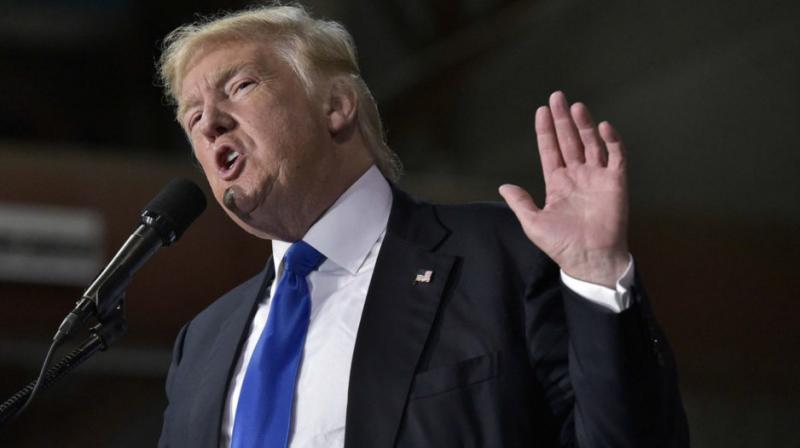Donald Trump pressures Republicans to repeal Obamacare
Senate Majority Leader Mitch McConnell is expected to lay out the path forward Tuesday at a closed-door Republican lunch.

Washington: Senate Republicans face a do-or-die vote Tuesday to launch a new Obamacare repeal effort, as confusion reigns over what path President Donald Trump's party will take and whether they even have the votes to move forward.
On Monday, Trump strongly warned Republicans that they must pass health care reform, taking his party to task and bluntly declaring that "Obamacare is death." Several measures have been considered but then collapsed in recent weeks.
The latest Republican plan is a bid to dismantle the 2010 Affordable Care Act pushed by Trump's predecessor, but delay the actual implementation of the repeal to allow time for a viable replacement to be crafted. That bill is highly unlikely to pass in its current form, but the Senate leadership has stressed the importance of at least voting on it in order for changes to then be introduced.
The approach was not flying with some Republicans. "I don't have a clue what we'll be voting on," said Senator Ron Johnson, a Republican who has long criticized the health care reform process.
Senator Lisa Murkowski, who has opposed various earlier versions of the legislation, sounded unsure about what bill was being considered Tuesday, or whether she would vote to begin debate on it. "I would like to know more," she said.
Senate Majority Leader Mitch McConnell is expected to lay out the path forward Tuesday at a closed-door Republican lunch. He and other Senate Republican leaders acknowledge they do not know whether there is sufficient support to even open debate on the new plan, a sign of Republican division about the impact such reforms might have on millions of American families.
With less than three weeks before the Senate is to leave Washington for its already-delayed summer recess, Trump took to his bully pulpit and demanded his party get in line.
"Any senator that votes against starting debate is telling America that you are fine with the Obamacare nightmare," Trump said at the White House, where several "victims" of Obamacare stood as a backdrop to his remarks.
"Obamacare is death," Trump added. "It's gone. And now it's up to us to get great health care for the American people." Trump has repeatedly grilled fellow Republicans for not following through on their and his campaign pledge to repeal and replace Obamacare, something he said he aimed to do immediately once in office in January.
Republicans hold 52 of the Senate's 100 seats. With all Democrats opposed, Trump can afford just two defectors. Senator John McCain, who was convalescing in Arizona following a brain cancer diagnosis, will return Tuesday, his office announced, in yet another sign of just how important the numbers are for this vote.
As of last week, three Republican holdouts said they will vote no on Tuesday's so-called motion to proceed, which opens debate on the legislation.
Trump went to one of their home states Monday, personally lobbying Senator Shelley Moore Capito as the pair attended a Boy Scouts convention in Beaver, West Virginia.
"You better get Capito to vote for it," Trump said, joking that he would fire Health Secretary Tom Price if the Senate vote fails to advance the bill.
Several other Republicans have also expressed concerns, but have not announced how they will vote. "I think until the vote is actually on the floor of the Senate, some people may not tell you what they're actually going to do," Senate Republican John Barrasso told CBS talk show "Face the Nation" on Sunday.
Once the repeal-only bill is on the floor, it could be amended "in various ways," Barrasso said, including changing it to a repeal-and-replace bill.
Forecasts by the non-partisan Congressional Budget Office on various health reform bills have predicted that millions of Americans would lose health care if the measures become law.
In the case of a bill that repeals Obamacare and provides no replacement, 32 million more people would be uninsured by 2026 as compared to current law, CBO forecast.
Some Republicans have expressed concern with how legislation would impact Medicaid, the health insurance program for the poor and the disabled. The latest repeal-and-replace bill would roll back an expansion of Medicaid and slash its federal funding.
It would also end the mandate that most individuals have health insurance, and allow states to let insurance companies offer bare-bones plans not allowed under current law.

